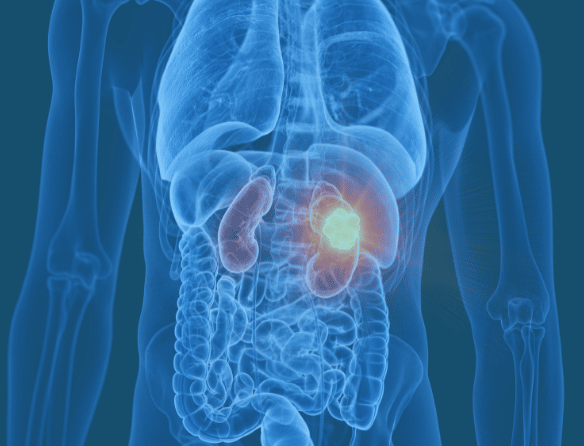The commonest kidney cancer, in adults, according to Nephrologist in Karachi is renal cell carcinoma (RCC); there are other less common types of kidney cancers in adults, as well. However, in children, the commonest type of kidney cancer is Wilm’s tumor. Commonly, at the time of diagnosis, most kidney cancers are confined to the organ and well localized. This means that with timely treatment, there can be complete cure from kidney cancer. Read on to know more about kidney cancer, its symptoms, causes and treatment options:
What is kidney cancer?
Kidneys are two bean shaped organs located on either side just behind the liver and stomach. The kidneys produce urine from the blood by detoxifying it and removing liquid and nitrogenous waste from the blood. This means maintaining the water and electrolyte balance in the body including sodium, potassium, magnesium and calcium.
In addition to producing urine, the kidneys make erythropoietin, which in turn is used to stimulate the production of red blood cells in the body. Moreover, the kidneys convert vitamin D into its active form, to absorb calcium from the intestines. These vital organs also help to control blood pressure through renin production.
Kidney tumors are abnormal growths in the kidney, which can interfere with its normal functioning. With these abnormal cells in the kidneys, there can be hormonal and electrolyte imbalance, along with buildup of toxins in the blood.
How common is kidney cancer?
In the United States alone, kidney cancer is among the top ten cancers diagnosed yearly. In fact, more than 76,000 new cases of kidney cancer are identified every year. This cancer is more common in men in comparison to women, especially those above 75 years of age. However, this cancer can occur at any age. As with most cancers, early diagnosis and treatment can improve the chances of survival.
What are the symptoms of kidney cancer?
In the early stages, kidney cancer can have no signs and symptoms. In time, there can be:
- Unexplained weight loss
- Pain in the flanks
- Blood in the urine
- Loss of appetite
- Fever
- High blood pressure
- Bone pains
- High serum calcium secondary to hyperparathyroidism
- Anemia or low serum hemoglobin
- Poor well being
What are the causes and risk factors of kidney cancer?
The causes of kidney cancer include:
- Age: as mentioned before, even though kidney cancer can occur at any age, it is more common in people aged 75 years and above. Thus, increasing age has a direct correlation with kidney cancer.
- Smoking: the toxins in cigarette smoke can predispose to kidney and bladder cancer. This risk decreases significantly after smoking cessation and increases the longer one keeps smoking.
- Hypertension: high blood pressure is also linked to increased risk of kidney cancer.
- Obesity: the higher the body mass index (BMI) is, the higher the risk of kidney cancer is.
- Positive family history: individuals with family members suffering from kidney cancer, such as siblings, parents or first cousins, are at higher risk of kidney cancer.
- History of radiation therapy: people who have been treated with radiation therapy in the past can have slightly increased risk of kidney cancer.
- Long-term dialysis: kidney failure and subsequent dialysis therapy also predispose to kidney cancer. Dialysis is the process whereby blood is cleaned through a special machine, if the kidneys are non-functioning.
- VHL disease: Von Hippel-Lindau is an inherited disorder which causes development of benign tumors in the blood vessels. If one has this disorder, one is predisposed to developing kidney cancer as well.
How to treat kidney cancer?
The treatment of kidney cancer begins with staging of disease. Once the disease is staged, the therapeutic options include:
- Surgery
- Radiation
- Targeted drug therapy
- Ablation
- Immunotherapy & chemotherapy
What is the outlook of kidney cancer?
The prognosis and outlook of kidney cancer depends on the staging of disease and the general state of health. with early diagnosis, most cases are treatable.
What steps can be taken to prevent kidney cancer?
Though it is not completely preventable, according to experts at Chinar International Hospital the risk of kidney cancer can be decreased through smoking cessation, working out and maintaining optimal weight and managing high blood pressure.
